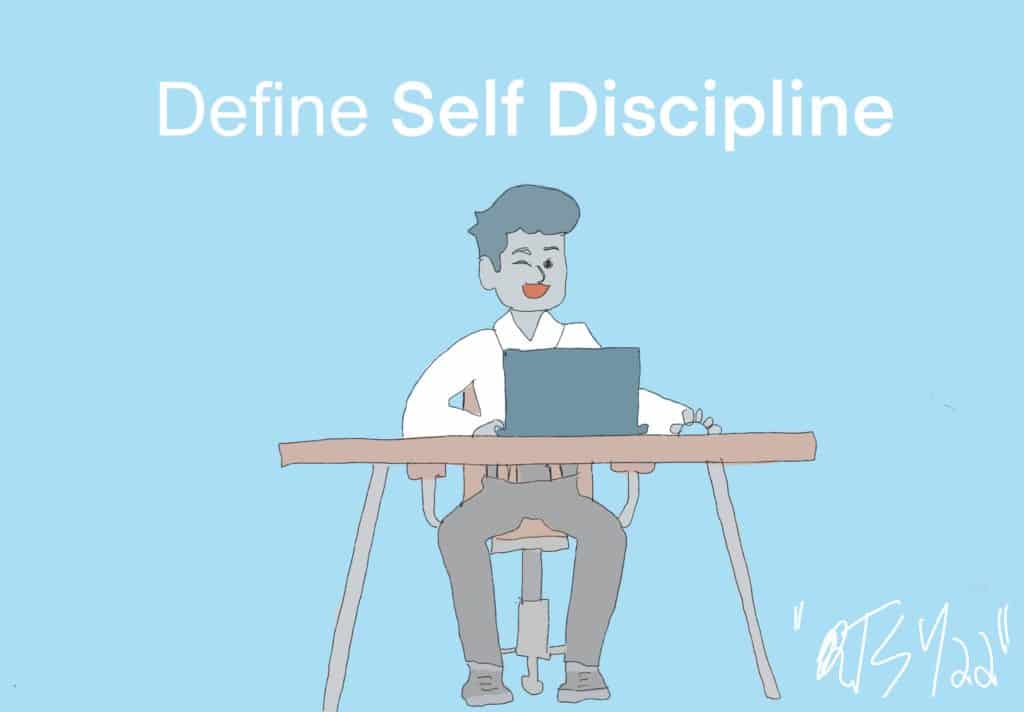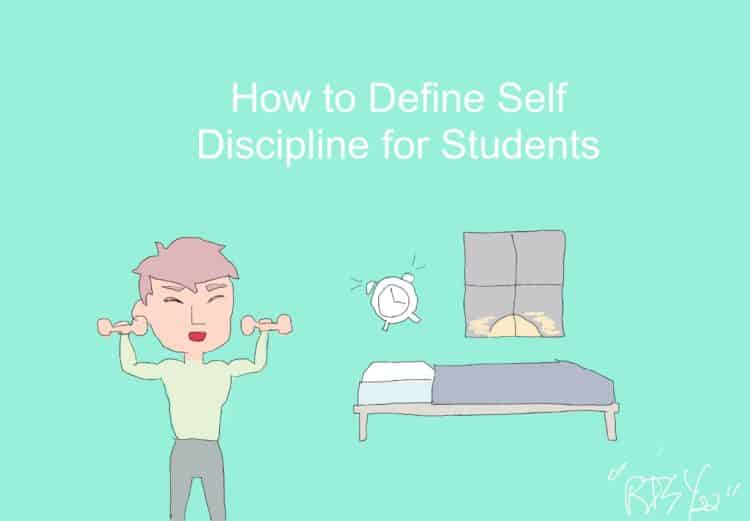Throughout your life, having self discipline will give you a leg up in nearly every arena. As you develop your scholastic abilities and attend to your academic career, in particular, how you define self discipline will become one of your most invaluable skills.
This is largely because not everything is going to interest you in school. There will inevitably be assignments to do, essays to write, and books to read that you simply have no motivation for.
Each time, trudging through them nevertheless offers some examples of discipline despite disinterest. Below are some useful tips for further developing your self discipline as a student. First, though, let’s define self discipline.
Table of Contents
How to Define Self Discipline
When we define self discipline, we’re really looking at what it means to be someone who is in total control of his or her own thoughts, feelings, and actions.
Now, you may be thinking to yourself, “I’m definitely someone who regulates my thoughts, feelings, and actions!” But are you really?
Self discipline is difficult because it’s difficult to be in complete control of how you manage your time, think about your life, and control your emotions. Each of these skills takes a long time and a lot of work to cultivate.
For instance, consider the following examples of discipline in action. Think about how difficult it might be for you to do these things yourself:
1. Wake up an hour early every day to work out at the gym.
2. Study on the weekends.
3. Ask a friend, parent, or your teacher for help even though you feel embarrassed about not understanding something.
4. Finish reading an assigned book even though you don’t like it.
5. Quit your daily Starbucks habit because you’re trying to save money.
If you look at this list and see things that would be fairly easy for you to do, perhaps you are already someone who has great self discipline.
For many of us, however, this list is full of things that would be very difficult to just start doing overnight. And that means we perhaps need to work on our self discipline
Why Self Discipline Is so Important
Self discipline is an essential part of being successful in life. Perhaps nowhere is this more true than in school. If you can master self discipline in your academic life, you can:
- Get better grades
- Set yourself up for a great career
- Set yourself up for more money-making power and, in turn, be better prepared to support yourself as you get older
- Stand out in class (in a good way)
- Meet other life goals
- Never feel like you’ve given up
Student Self Discipline Steps
Very few people are born with self discipline. Most of the time, it’s something people learn and teach themselves. If you would like to become more self disciplined as a student, here are the steps you need to take.
1. Know where you need the most work.
Start by looking at your faults. Everyone has them, so don’t be ashamed! When you know where you need help on your self discipline journey, you can better arrange your priorities as you start to improve.
2. Improve your time management skills.
How you manage your time will be a huge influence on your success in life. If you faff around a lot or get easily distracted, this doesn’t bode well for your self discipline endeavors.
Try working for a while and taking breaks. Try a zero-distraction, total focus “flow” approach. Try organizing your time with a friend. Find what works for you.
3. Figure out when you work the best.
Everyone has a time of the day when they work the best. Figure out what time this is for you, and factor it into your daily schedule.
4. Get help when you need it.
Don’t be afraid to ask for help. It is a sign of intelligence to ask for assistance and support. It also takes a certain amount of self discipline to do this.
5. Learn organization skills.
Part of self discipline is actually doing the work — the studying, the flashcard making, the reading, the writing, the listening. But another huge chunk of self discipline is staying organized.
Keep your papers well-filed. Have a place for everything. And discard what is not useful to you anymore.
6. Keep a positive outlook, and never give up.
Lastly, never stop trying. Self discipline won’t be learned overnight, but that doesn’t mean it’s not worth aiming for. Aim for the moon, and even if you land among the stars, you’ll have succeeded.

Other Benefits of Self Discipline as a Student
Many students make the mistake of thinking that self discipline is all about getting better grades. And while you will certainly get better grades if you are self disciplined, there are many other benefits to self discipline as well. These include:
- Higher self-esteem
- More motivation to try new things
- A sense of daily accomplishment
- A lower propensity for addiction
- Feeling in control of your life’s direction
More Tips for Students who Seek to Be More Disciplined
Want to go above and beyond?
While the self discipline steps outlined above certainly provide a strong framework for becoming more disciplined, there’s always more to do. Here are some other tips for students who want to be more disciplined in their lives.
- Create deadlines for yourself, and keep them.
- Learn how to take useful notes quickly and efficiently.
- Have fun! Socializing, playing sports, and doing other fun activities is great. Just know when to differentiate between fun and work.
- Keep track of your deadlines daily. Set aside a time when you can consistently review deadlines and your daily calendar.
- Avoid keeping your phone with you at all times, and learn how to set aside other common distractions.
Set Your Mind to Self Discipline
Although you may not be someone who naturally has self discipline, this doesn’t mean that it’s a skill you can’t develop. With attention, dedicated time, and consistent practice, anyone can develop the self discipline they need to succeed in school and in life.

